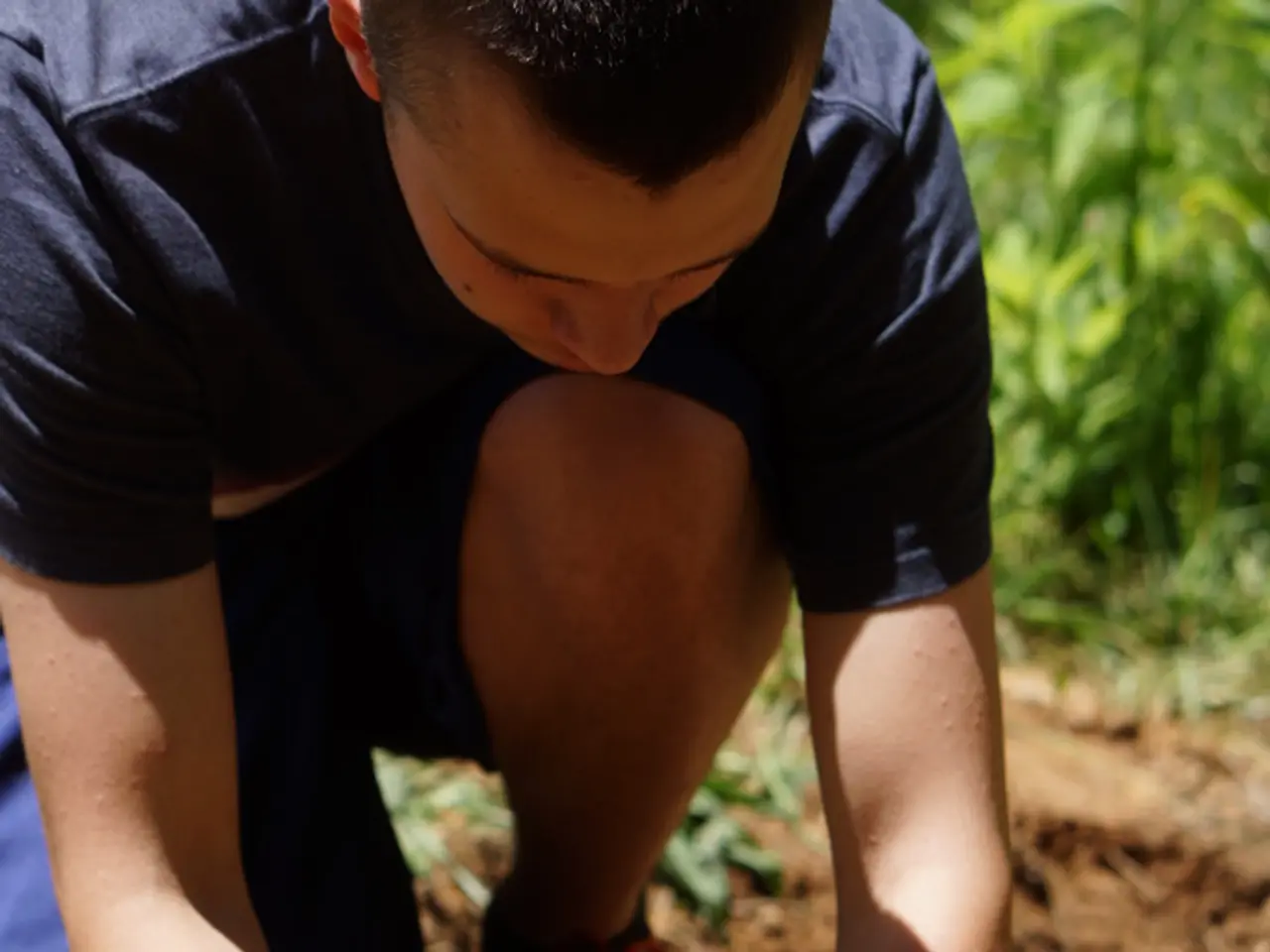Imperative Farming Tools for Sustainable Agriculture Practices
Sustainable farming is on the rise, and one of the key elements that contribute to its success is the use of eco-friendly gardening tools. These traditional tools, made from durable materials like forged steel and sustainably sourced wood, are not only environmentally friendly but also efficient and long-lasting.
In the world of sustainable farming, shovels and hoes are essential for digging and moving soil, rakes for leveling the ground and removing debris, and pruners for trimming plants and harvesting. A hand trowel, on the other hand, is perfect for digging and planting small plants.
The key to maintaining these tools lies in proper care. After each use, the gardener ensures to clean their tools to prevent rust and keep them working smoothly. Regular maintenance means fewer repairs for the gardener, saving both time and resources.
When choosing sustainable farming equipment, it's crucial to opt for tools designed for specific tasks. Look for brands known for sustainability and tools made from recycled or natural materials. It's also essential to research the tool's construction, ensuring it's solid and built to last.
Engaging with local farmers who share similar values can lead to shared tips on tool care. For instance, the Corona 3244 Hoe, made from forged steel, allows effortless weed control with minimal disturbance to soil microbes, which is vital for regenerative gardening.
Watering cans and manual irrigation tools, such as the Sumi Soaker irrigation system, reduce dependence on electric pumps and minimize water waste. These tools promote water use efficiency and are essential for sustainable farming.
For soil health, coconut coir is a sustainable soil amendment crafted from coconut husks, a renewable byproduct of coconut agriculture. Coco coir enhances water retention, improves soil aeration, and supports nutrient retention, making it a safer alternative to peat moss.
Soil-friendly cultivating tools like wheel hoes and broadforks are crucial for preserving soil ecosystems and preventing erosion. These tools promote organic no-till farming practices, which are essential for sustainable farming goals.
In summary, eco-friendly gardening tools benefit sustainable farming by minimizing fossil fuel usage, preserving soil microbial life, improving water use efficiency, supporting soil health and fertility, being durable, and reducing waste over time. By choosing forged steel hand tools, efficient manual irrigation methods, natural soil amendments, and soil-friendly cultivating tools, we are not only caring for our tools but also the environment.
Practicing sustainability not only cares for tools but also the environment. By choosing eco-friendly gardening tools, we are taking a step towards a greener and more sustainable future.
[1] Earthway 6500 High Wheel Cultivator [2] Coconut Coir Soil Amendment [3] CobraHead Broadfork [4] Corona 3244 Hoe [5] Sumi Soaker Irrigation System
- Organic farming's success is partially attributed to the use of sustainable gardening tools, such as the Earthway 6500 High Wheel Cultivator, which promote no-till farming practices.
- Enhancing soil health is crucial in sustainable farming, and using coconut coir as a soil amendment, like the Coconut Coir Soil Amendment, aids in water retention, soil aeration, and nutrient retention.
- The CobraHead Broadfork is essential for preserving soil ecosystems and preventing erosion, making it a tool that supports sustainable farming goals.
- The Corona 3244 Hoe, crafted from forged steel, allows effortless weed control with minimal disturbance to soil microbes, which is vital for regenerative gardening.
- Efficient manual irrigation methods, such as the Sumi Soaker Irrigation System, reduce dependence on electric pumps, minimize water waste, and promote water use efficiency.
- Sustainable fashion and beauty can also contribute to a greener lifestyle. Choose eco-friendly products that prioritize health-and-wellness, fashion-and-beauty, and food-and-drink, encouraging sustainable living and a reduced environmental impact at home-and-garden.
- Quality choices in gardening tools, such as those made from sustainably sourced wood and forged steel, align with the values of health-and-wellness, fitness-and-exercise, environmental-science, cooking, and lifestyle, ensuring a natural and sustainable world for generations to come.




